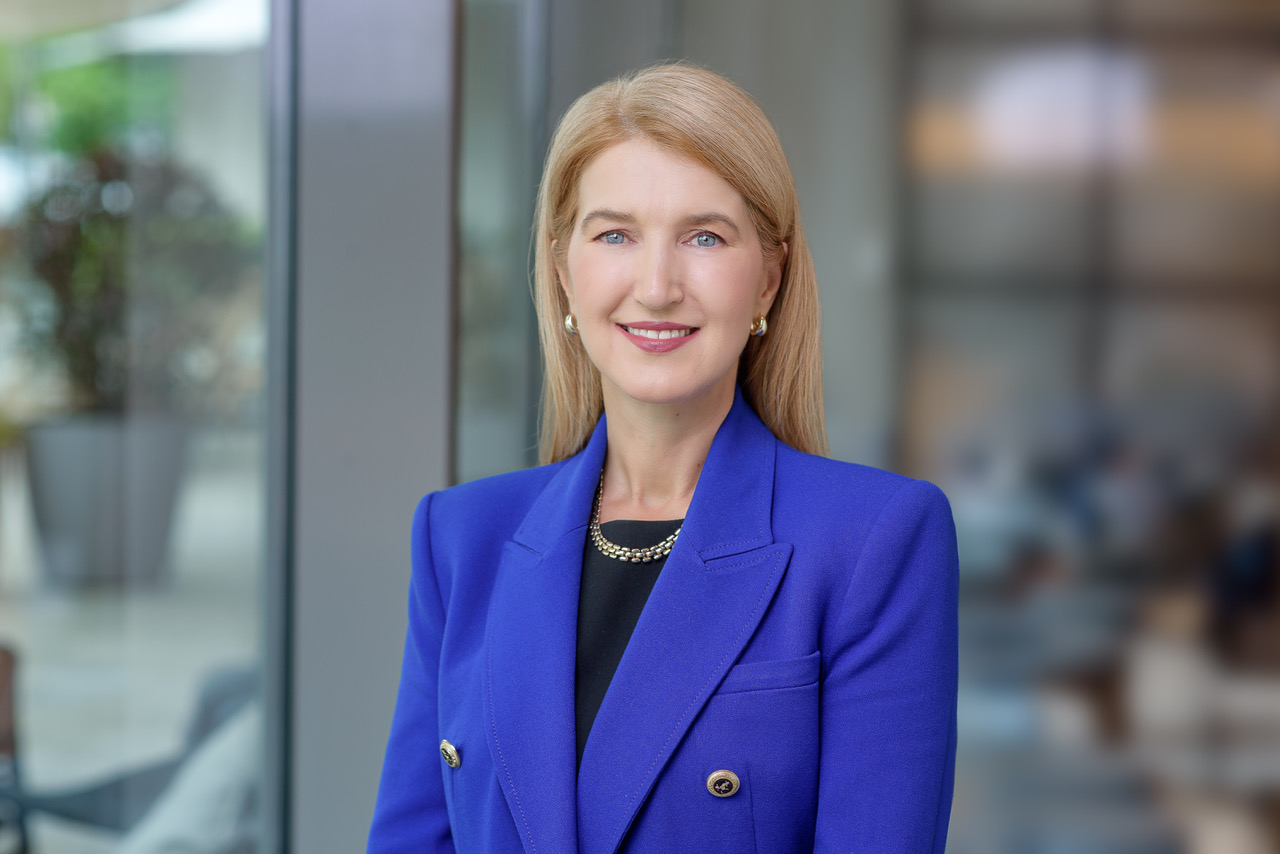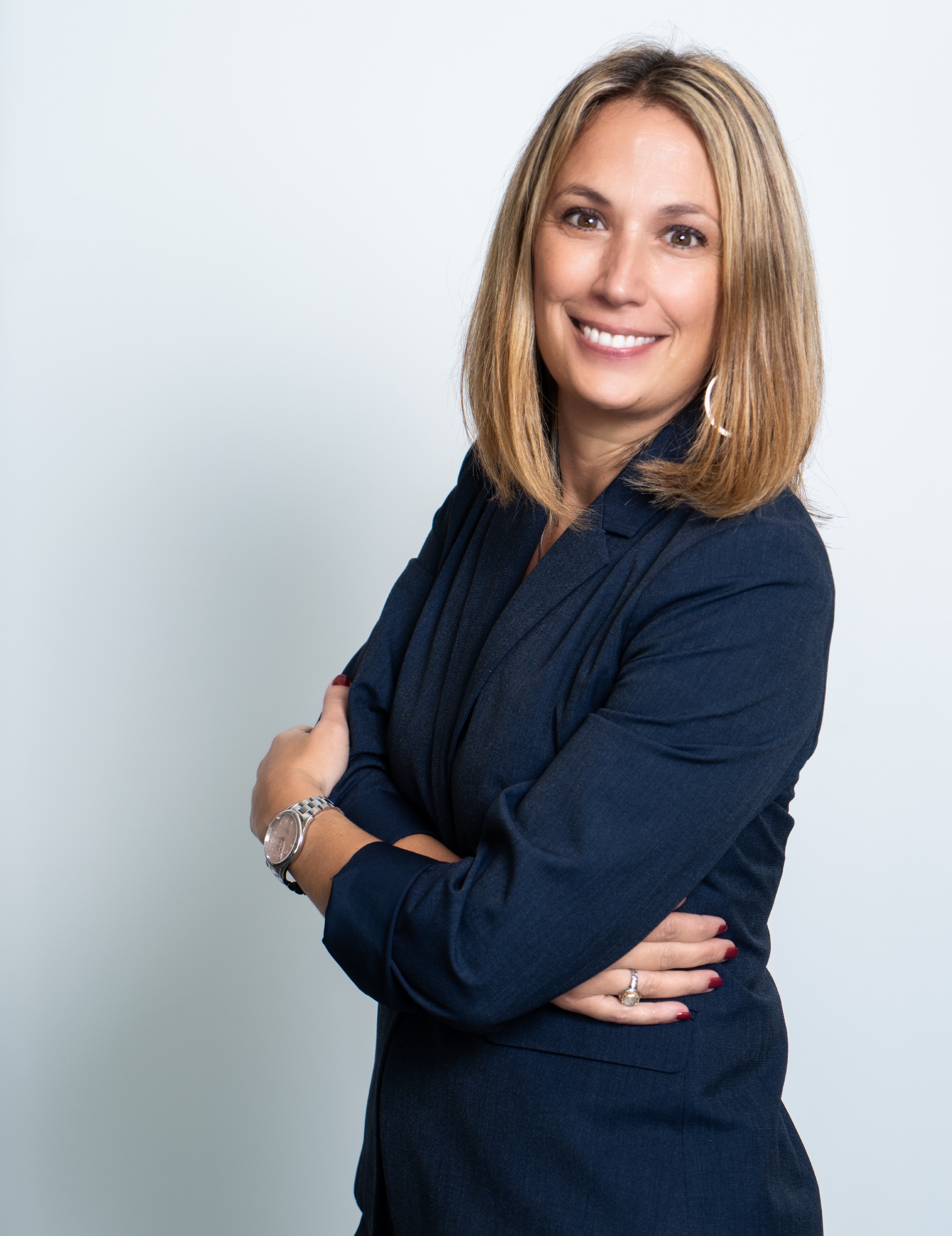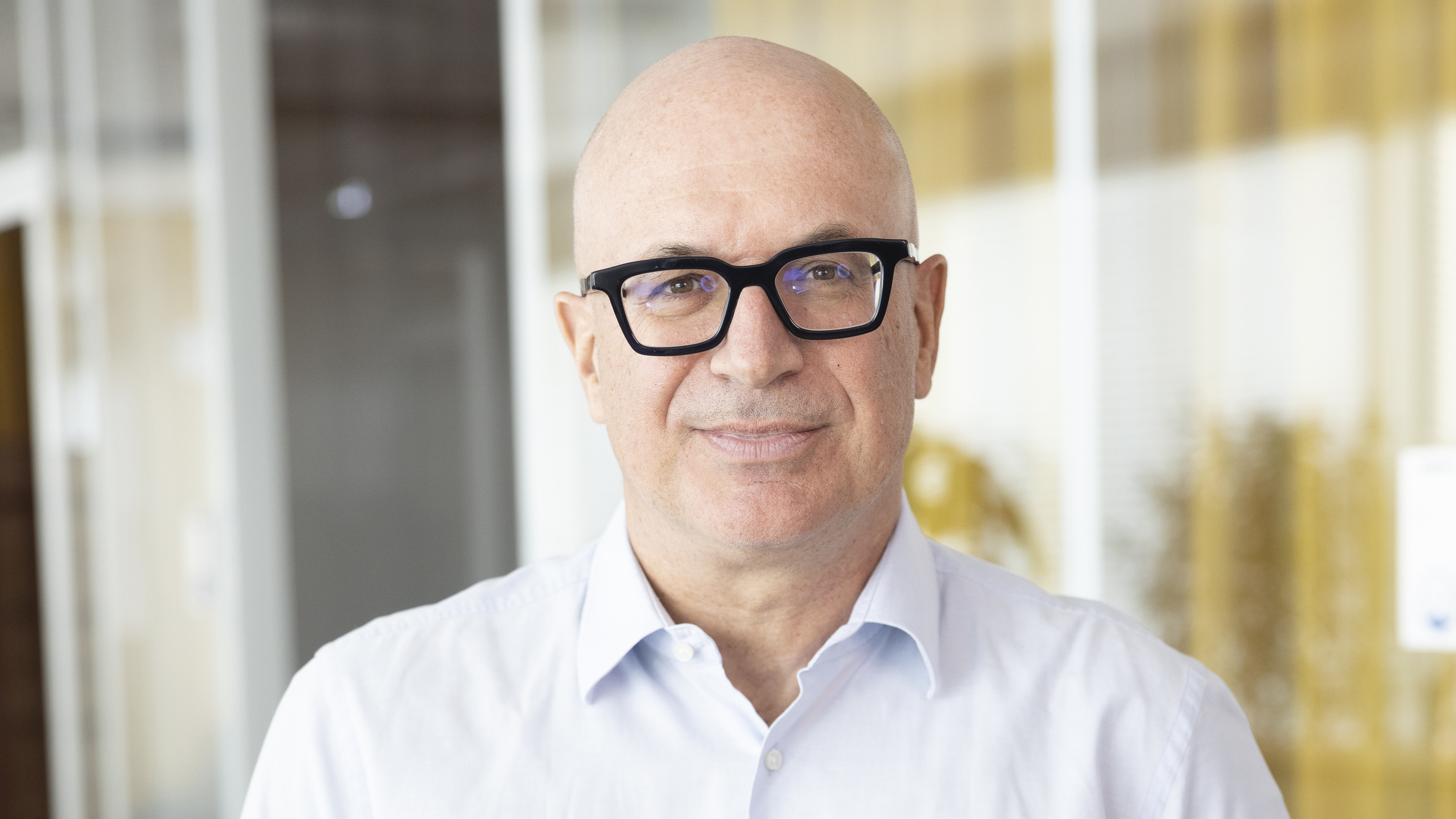Keeping Agile, Targeting Sustainability, Focusing on Personal Relations and, Naturally, the Customer
Andreas Szakácsi (left) and Robin Marshall.
Photo by Marianna Sárközy.
Andreas Szakácsi, managing director of Claas Hungária, was one of three shortlisted nominees for the 2023 Expat CEO of the Year award. The Budapest Business Journal asked him about that honor, the gala event, and the plans for the company this year.
BBJ: Congratulations on being shortlisted for the Expat CEO of the Year award. What are your recollections from the night of the gala?
Andreas Szakácsi: The whole evening was something special to me. It started with entering the venerable Corinthia Hotel Budapest, full of anticipation and excitement. From the beginning, there was this very special festive atmosphere that continued into the ballroom. It was great to get to know new people and meet old friends again. I definitely received a lot of new impulses and ideas that also created new perspectives for myself, and I once more realized the massive diversity in our expat community. And yes, simply to be in the center of attention with Veronika [Spanarova of Citi, the eventual] and Matt [Zeller of Novartis, the other runner-up] was very special.
BBJ: What do you think the fact that you were shortlisted means to your team?
ASz: It creates a huge motivation and pride, as the development and results of the company during the years are created by the team, of which the CEO is only a part. The CEO sets the targets, direction and guardrails to achieve the company goals. On the other hand, the CEO has to provide and organize resources to give the team the best base and the tools to run the operational business, execute projects and achieve the goals. And resources do not mean only the money; it also means having enough (and the right!) people on board and getting the best support from the headquarters and externals. The shortlisting reflects that our work is noticed and appreciated outside as well and that the CEO, as the team leader, did his job well. This creates excellent motivation and loyalty.
BBJ: You are German but have a family connection to Hungary, as indicated by your surname. How often did you visit the country growing up, and what were your impressions when you first moved here to work?
ASz: My first visit to Hungary was more than 50 years ago, followed by regular visits during my teenage years and as a student. Of course, my picture of Hungary was dominated by relatives and friends, by holidays and sightseeing around the country, and do not forget it was still the old political system.
When I moved to Hungary for my expat job roughly 40 years after my first visit, I saw a country with a lot of development in Budapest and the big cities. Infrastructure, shops, and language skills had really improved. Compared to my experience, people were much more open. Professionally it was similar; new, modern companies had been established in Hungary, and Hungarian employees were eager to learn and develop. A take-off mood could be felt. On the other hand, the countryside had hardly changed. Visiting my father’s village in Borsod-Abaúj-Zemplén County and many other rural places, I could scarcely notice any change, and this is still the case today.
BBJ: The parent company began 110 years ago as a family company, grew into what the Germans would consider a mittelstand, the nearest translation to which in English would be a medium-sized business, in the 1990s, and today is a global player with 12,000 employees. You have worked for Claas, in Germany and Hungary, for almost 22 years, and before that, for ThyssenKrupp, a public multinational. How do they differ?
ASz: A family business is much more permeable through the hierarchies. The hierarchy is usually flatter, and new ideas and concepts can be communicated quickly to the decision-makers. Today, you would say it is more agile. On the other hand, decision-making is more long-term oriented and thus less hectic, sometimes even slower. Strategy and roadmaps have a relatively long-term perspective, strongly targeting sustainable results and safeguarding financial independence with a strong and loyal workforce. Acting very professionally, a family company has a stronger focus on personal relations and is, therefore, more tolerant towards deviations. Last but not least, the customer focus is stronger and can be felt every minute in all areas.
BBJ: What are Claas Hungária’s plans for the remainder of 2023 and the medium term?
ASz: As we are in a phase of robust market demand for agricultural machines and technologies, our 2023 plans concentrate on serving our customers punctually for their harvest with our high-quality products. Supporting our suppliers and investing in new equipment was, therefore, the focus. Further steps are targeting further automation and digitalization of our operational processes, and to grow our educational base further in vocational areas, as well as with the universities, to safeguard expected growth in engineering activities and adapt to a growing product portfolio. Our role as a global hub for Claas components and product delivery will increase; within the engineering network, we are considering greater use of Hungary for product validation.
BBJ: The Expat CEO of the Year title wasn’t the only prize awarded at the gala on March 24. How important is the work of Andrea Solti Istenes (president of HBLF and country chair of Shell Hungary), who was presented with the inaugural Community Award?
ASz: In our business life, the focus is mostly on operational and financial results. That makes it all the more important to give explicit platforms and space to emphasize the importance of the human side: for the business, in the business, and for society as well. She touches and promotes all the essential topics for well-being and healthfulness in our social and professional lives and includes aspects that perhaps are not self-evident. Her work is a crucial base for developing a sustainable and diversified world.
BBJ: Finally, do you have a word for our 2023 Expat CEO winner, Veronika Spanarova, and the other runner-up, Matt Zeller?
ASz: Once again, congratulations to Veronika and Matt. It was impressive to see their personal and company contribution and activities in and for Hungary. Please, continue with the same energy, enthusiasm, and commitment in the future, and hopefully, our paths will cross again at one or another event, competition or project.
This article was first published in the Budapest Business Journal print issue of June 2, 2023.
SUPPORT THE BUDAPEST BUSINESS JOURNAL
Producing journalism that is worthy of the name is a costly business. For 27 years, the publishers, editors and reporters of the Budapest Business Journal have striven to bring you business news that works, information that you can trust, that is factual, accurate and presented without fear or favor.
Newspaper organizations across the globe have struggled to find a business model that allows them to continue to excel, without compromising their ability to perform. Most recently, some have experimented with the idea of involving their most important stakeholders, their readers.
We would like to offer that same opportunity to our readers. We would like to invite you to help us deliver the quality business journalism you require. Hit our Support the BBJ button and you can choose the how much and how often you send us your contributions.











